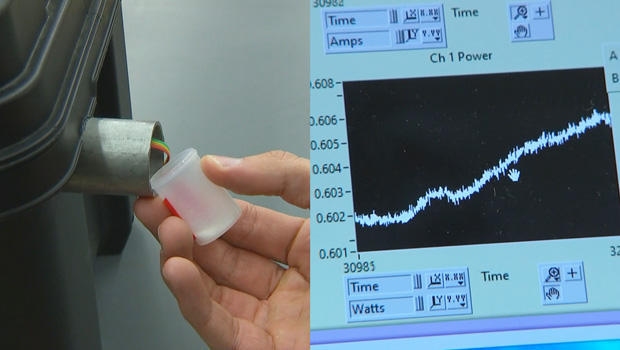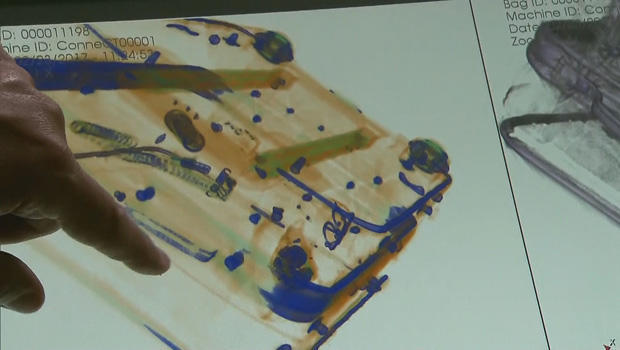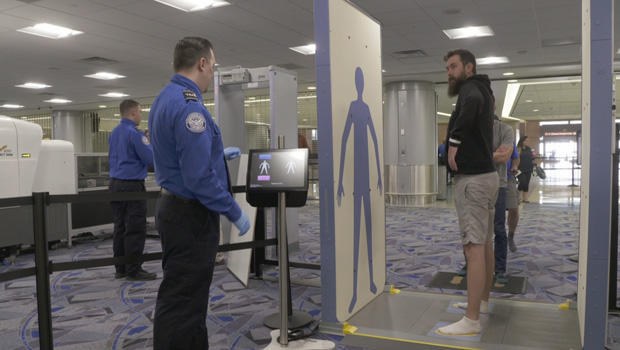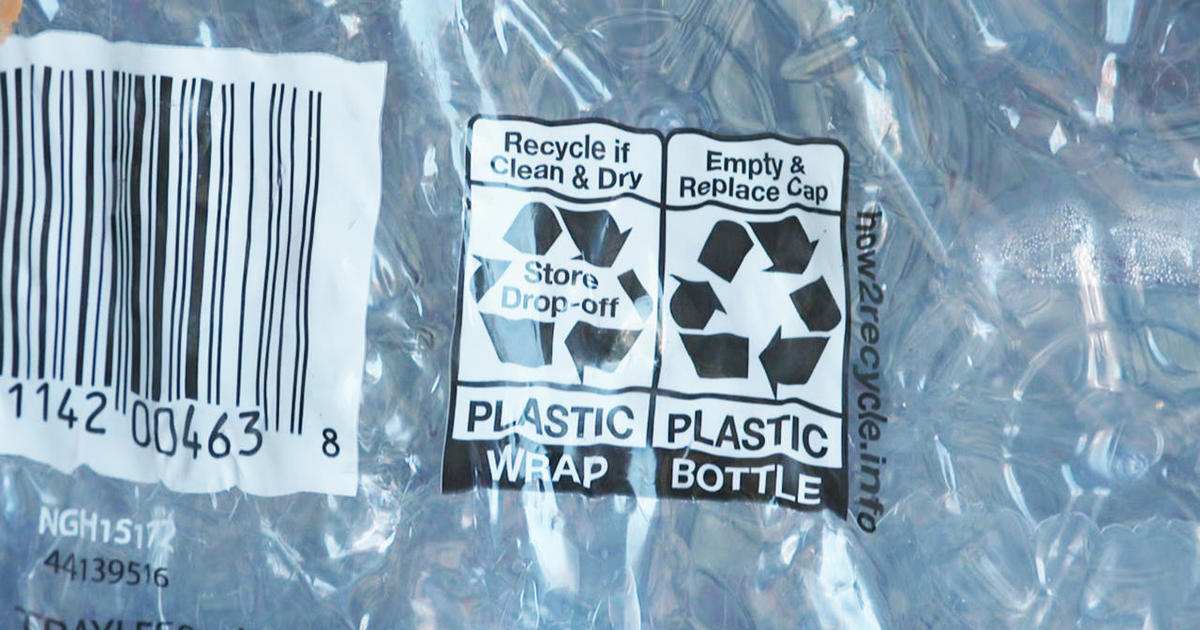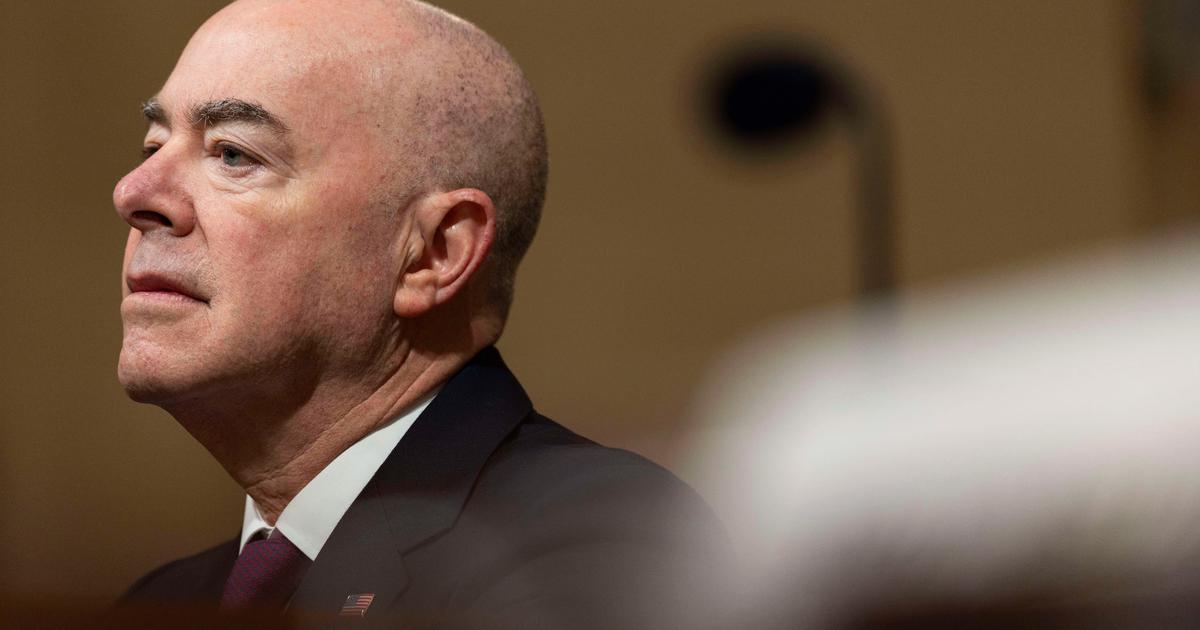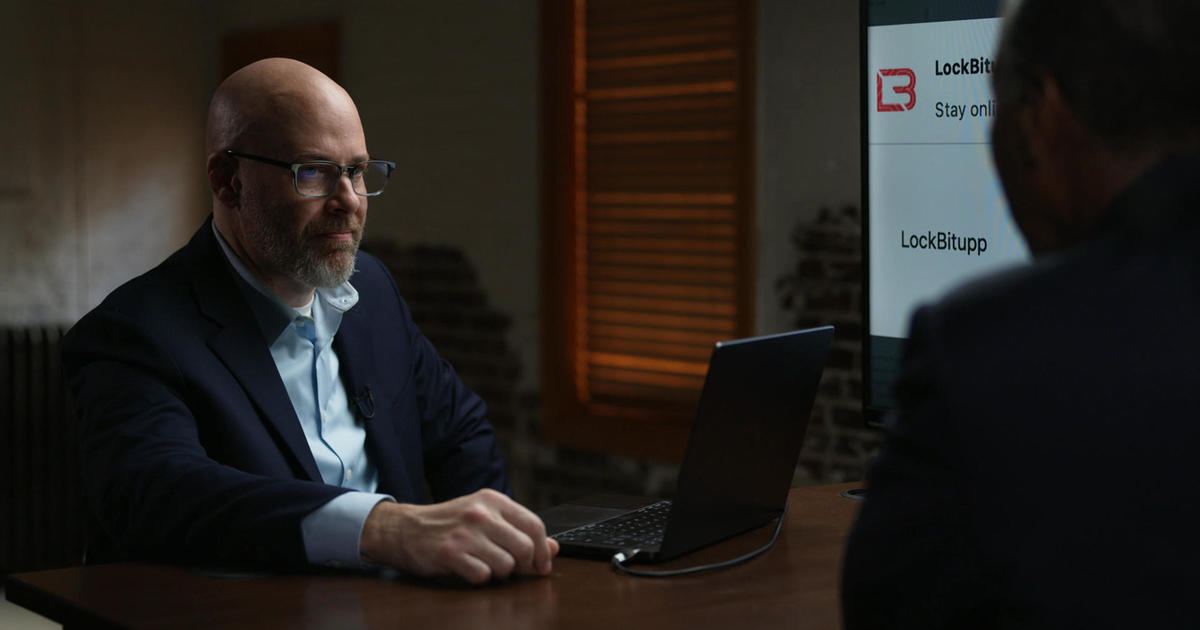"Innovation Checkpoint" and "digital dog nose": TSA tests new security technology
The Transportation Security Administration is bracing for a record number of people at airport security checkpoints around the country this Thanksgiving. Nearly 27 million passengers are expected to be screened during the holiday period, meaning travelers could face long security lines. But new technology being tested by the TSA could speed up screenings and address passenger complaints over electronics, liquids and taking off their shoes.
In a field outside Providence, University of Rhode Island researchers are working on new ways to detect and stop explosives popular with terrorists. They're partnering with the Department of Homeland Security on a sensor – called a "digital dog nose" – that will soon be the size of cell phone. Able to be mounted on a drone, it could can detect homemade explosives as well or better than a bomb-sniffing dog.
They've also created a gel called "Schmoo" that can surround an explosive or chemical agent and flash-freeze it so it can be safely removed from a transit hub.
"We think about how to detect and mitigate the threats for today, while we're still realizing that if we get really good about today's threats, there's going to be a different threat tomorrow," said professor Jimmie Oxley, of the university's Center for Excellence for Explosives Detection, Mitigation and Response. "What would that look like, and how would we attack it?"
About 2,700 miles away, at a new airport checkpoint in Las Vegas, the TSA's newest technology, in an area of Terminal 3 at McCarran International Airport, is being tested together for first time with real passengers. They call it their "Innovation Checkpoint."
"This is a glimpse into the future of what aviation security is going to look like," Jose Bonilla, the director of TSA's Innovation Task Force, told correspondent Kris Van Cleave. "What we're trying to do is, how do we make that a more seamless process for the traveling public, but not giving up on security capability? What you see here may not be here in a year. We may bring in new pieces of technology."
As passengers approach the innovation checkpoint, they'll see dynamic message boards. Next, new ID readers scan your license to quickly validate your identity and confirm you're flying that day, without needing to show officers your boarding pass
From there, carry-on bags go to a CT scanner. Electronics can stay in, and eventually the goal is liquids will, too.
The new scanners can more easily see through all the clutter in bags.
While it's not quite the scanner from "Total Recall," science fiction is coming alive with new walk-by body scanners. They display a generic male or female form and flag an area of the body where there may be a concern. The technology is also better at spotting non-metallic threats that a metal detector might miss.
"The improvement they really need to make for everybody is, don't take your shoes off!" said passenger Patrick Hinke.
"If they can speed it up a bit more, yeah. The ID thing was a little slow," said Keith Ross.
Deanna Sack said, "It's quicker. It definitely pushes people through a lot faster."
TSA hopes it can turn lessons learned at this Vegas checkpoint into reality around the country by 2022. Some of the technology, like the CT scanners, is already being rolled out at some airports.
TSA may also look to expand its use of facial recognition technology in the next few years.
